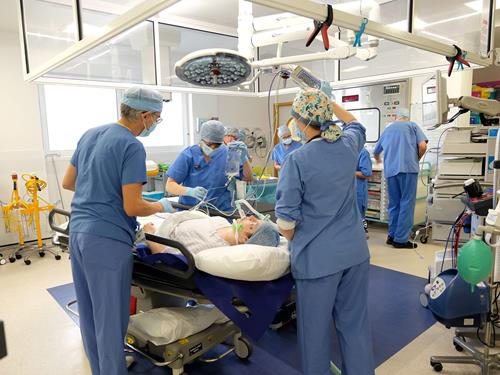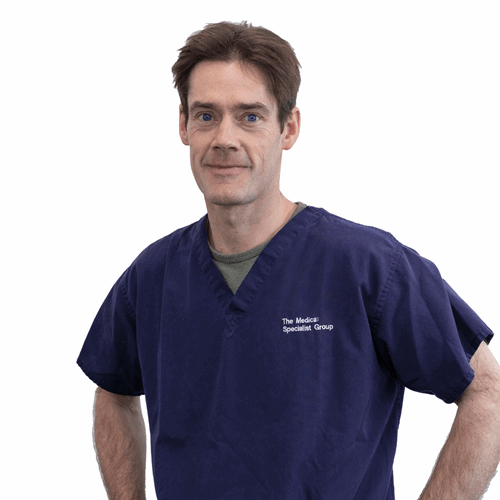
Services

Revolutionary new technology benefits local cancer patients
The Medical Specialist Group (MSG), in partnership with Health and Social Care (HSC), has invested in new technology to help the diagnosis and treatment of advanced melanoma and breast cancer on the island.
In addition to the significant benefits to patients, the technology has already paid for itself and saved around £75,000 by reducing the cost of sending patients off island for treatment.
‘Magtrace’ and ‘Magseed’ are both new types of non-radioactive lymphatic tracers developed for use in lymph node biopsies. This is a procedure in which a lymph node is identified, removed, and examined to determine whether cancer cells are present or if the cells have spread beyond a primary tumour into the lymphatic system.
While radioactive tracers have been used in Guernsey to treat breast cancer patients for several years, until recently any patient with deep melanoma, or skin cancer as it’s more commonly known, had to be treated in Southampton. The new technology not only enables melanoma patients to now be treated locally but it also provides an ideal back-up for breast cancer treatment.
MSG consultant surgeon Mr Thomas Fysh explains its numerous benefits:
‘Magtrace and Magseed are really sophisticated technologies that have transformed what we can offer patients on-island. Both can be injected prior to surgery while the patient is anesthetised, so no pain is experienced from the injection. What is more, the Magtrace can be injected a week before surgery and Magseed months before, allowing for greater flexibility around when the surgery takes place. Neither technology requires the use of radiology, which patients prefer and means that the surgery doesn’t require the nuclear medicine team’s involvement.
‘Having fewer specialists involved means less drain on resources and fewer cancellations. This has been particularly relevant throughout Covid.’
Since September, the new technology has benefitted ten melanoma and ten breast cancer patients. Due to staff absences in the radiology team over the pandemic, those breast cancer patients would have needed to travel to the UK for treatment and be placed on a UK wait list. Instead, they were treated in Guernsey using Magtrace or Magseed, avoiding any further delay and saving the States of Guernsey thousands of pounds, which can be invested elsewhere.
Dr Julie Hunt, a GP in Alderney, was the first patient to benefit from the Magtrace technology locally. She said:
‘Overall I had a really positive experience with my treatment. Of course I never expected to be diagnosed with a malignant melanoma and it was an incredibly unsettling and stressful time, but being able to receive treatment on island made the whole process that bit easier. It meant no added stress of packing, at the time getting Covid tested before flying, wearing a mask, you don’t have the unfamiliarity of doctors or your surroundings, and you have your support system around you still.
‘Fortunately, my results showed the cancer had not spread and having that peace of mind was hugely beneficial to me. Mr Fysh saw me quickly, the treatment was extremely efficient, and my experience of the MSG was just amazing, from the reception team right through to surgery. I am very thankful to them for the brilliant care I received.’
MSG Chairman, Gary Yarwood, said: ‘We are always focused on developing our services on the island and continually seeking out new or improved ways to treat our patients. The rationale for getting the technology was considerable. After several months of negotiating and testing, coordinated between Mr Fysh, the breast unit, the medical director and HSC management, we came to an agreement with our supplier. It’s a great example of the partnership of purpose in action and working.
